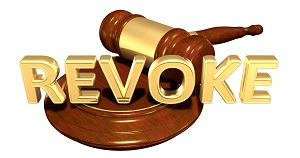A community without order is not a community at all. Rules and regulations exist to prevent the HOA from descending into chaos and total ruin, but enforcing them is a different problem altogether. Some associations find it enforcing HOA rules an easy task, while others encounter more obstacles than solutions. If you fall under the latter, you have come to the right place. Here are four steps on how can HOA enforce rules.
How Can HOA Enforce Rules? Follow These Tips
New homeowners are given a copy of the HOA’s rules and regulations before they purchase a house. By signing on the dotted line, they agree to abide by these rules and face any consequences should they fail to do so. Your HOA, on the other hand, has a responsibility to make sure these rules are followed by all homeowners. Enforcing homeowners association rules is just part of the job.
This job, though, is usually more difficult than it seems. Without the proper knowledge and tools, HOA enforcement of rules can quickly fall apart, resulting in total disarray. Luckily, there are some steps you can take to ensure a smooth homeowners association rules enforcement. Let us take a look at each one below:
1. Have a Standard Procedure
 All homeowners associations, new or old, must have a set of standard procedures when it comes to HOA rules enforcement. These are usually found in an association’s governing documents, such as the bylaws and CC&Rs (Covenants, Conditions & Restrictions).
All homeowners associations, new or old, must have a set of standard procedures when it comes to HOA rules enforcement. These are usually found in an association’s governing documents, such as the bylaws and CC&Rs (Covenants, Conditions & Restrictions).
Whenever a rule or covenant is violated, you must make sure to follow the series of steps stipulated with these documents. While these procedures vary from community to community, here are some of the more common ones found across HOAs:
- The HOA board must discuss the violation and take a vote before acting upon it.
- A notice must be sent to the resident informing them of their alleged violation, with a set number of times and through the proper medium/s.
- The resident is allowed a certain time period to resolve the violation before further action is taken by the HOA board.
2. Impose a Fine
 Should a homeowner fail to comply with the rules set forth by the HOA’s governing documents — for example, defaulting on HOA fees — they must be held accountable for their actions.
Should a homeowner fail to comply with the rules set forth by the HOA’s governing documents — for example, defaulting on HOA fees — they must be held accountable for their actions.
Your HOA may elect to levy a fine against the violator in question, provided this consequence is outlined within the governing documents.
Enforcing HOA covenants by imposing a fine can help discourage residents from committing violations. Your HOA, though, must see to it that the violator is notified of the amount they are expected to pay and when they are expected to settle it.
The amount should be reasonable given the violation. Too small an amount will not frighten residents, while an amount that is too expensive can draw your HOA flak. As such, it is good practice to charge a smaller amount for the first offense, with every succeeding offense marginally increasing.
3. Revoke Rights and Privileges
 One of the perks of living within a planned development is access to a variety of community amenities. Looking for a place to hang out with your friends? The clubhouse is free to use for all association members.
One of the perks of living within a planned development is access to a variety of community amenities. Looking for a place to hang out with your friends? The clubhouse is free to use for all association members.
Feeling hot on a summer’s day? The community pool is just a few steps away. Missed leg day last week? Make up for it at the community gym or fitness center.
While these amenities are available to all residents of the community, your HOA can take it away. Should a resident violate a rule, your HOA has the ability to restrict their access to community facilities. But, it does not end there. Your HOA can also suspend the violator’s right to vote on certain issues affecting the association. In more extreme cases, your HOA can even cut off utilities, provided these utilities are paid through assessments.
Much like the imposition of a fine, though, your HOA’s power to revoke rights and privileges is limited by what it says in the governing documents. As such, your authority depends on these documents and state law.
For instance, in North Carolina, an HOA can’t take such actions unless these documents specifically dictate that your HOA can levy a fine or suspend privileges. Instead, a hearing before the executive board shall take place to determine whether such consequences are warranted.
4. Legal Action
 Some residents think that, even after committing several violations, they are impervious to a lawsuit. But just because it does not happen often does not mean it can’t happen at all.
Some residents think that, even after committing several violations, they are impervious to a lawsuit. But just because it does not happen often does not mean it can’t happen at all.
In truth, your HOA does have the option of enforcing HOA rules by taking the matter to court, especially if the resident fails to resolve the violation even after receiving more than enough notices.
Keep in mind, though, that the availability of this route depends on your state laws. Some states prefer to have your HOA attempt to settle the issue out of court through arbitration or mediation first.
Your HOA can also file a case against a homeowner who refuses to pay their fines. In more serious cases, you can place a lien on the resident’s property, which can ultimately end in foreclosure. Of course, no one wants their disputes to escalate into legal action, so it is best to first consider all other options.
Bonus Tip: Spread Awareness
Even though homeowners are typically given copies of the governing documents when they first move in, your HOA must still make sure everyone is aware of the rules and regulations. After all, how can HOA enforce rules if these rules are not known by all homeowners in the first place?
People have a tendency to misplace physical items, so it is a good idea to have a copy of the rules posted online or on the HOA’s website. Any changes in the rules must also be broadcasted and disseminated in a timely and efficient manner. Post constant updates on social media reminding residents of the rules, especially the ones that are constantly being broken.
Proper Rule Enforcement Starts Here
Homeowners associations are no stranger to rule violations. It is human nature to make mistakes, so infractions are going to happen whether you like it or not.
When they do happen, your HOA must follow a standard procedure as outlined in the governing documents. Ensure compliance by imposing fines, suspending rights and privileges, and, if it comes to it, taking legal action. Follow these steps on how can HOA enforce rules and stay away from selective enforcement. Your community will be much better for it.
Some associations continue to face problems in HOA rules enforcement despite adopting these tips. If you are one of them, it may be time to partner with an HOA management company for expert help. Do not hesitate to shoot us a message.
RELATED ARTICLES:
- HOA Selective Enforcement: Playing It Fair
- Planning And Enforcing HOA Rules For Renters
- Are HOA Pet Restrictions Allowed?






